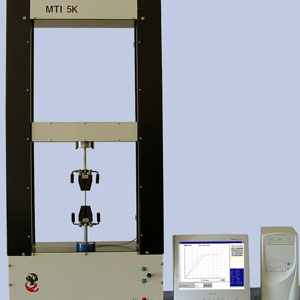Benefits of Materials Testing Machines
General testing machines can accommodate testing requirements in quality control and research initiatives. Regardless of whether they are designed for low-tried forces or massive loads, all standard testing machines produce excellent test results.
Why
use Materials Testing Machines?
To examine the
elasticity and compressive strength of materials, a universal testing system or
material testing machine is used. It is capable of carrying out a variety of
standard tensile and pressure tests on materials, components, and structures.
Testing machines are an
important part of value assurance, and we need to provide you with the best
test machine foundation possible so that your items can withstand the pressure
that will be applied to them. Material testing machines, strength testing
machines, pressure testing machines, and metals testing devices are among the
testing frameworks we provide. Material testing allows us to determine whether
a particular material or treatment is appropriate for a particular application.
Why
choose MTI?
MTI is a well-known
supplier of static materials testing equipment for pliable, strain, flexure,
shear, and contort tests. Our static material testing equipment can be used in
a variety of applications and situations.
Material testing
machines, strength testing machines, pressure testing machines, and metals
testing equipment are all available from us. Material testing can reveal a
wealth of information about the materials, models, or item tests that have been
tried for a variety of applications. Engineers, designers, production
directors, and others will value the information gathered during testing and
the final test results.
Testing is an essential
part of both the design and manufacturing processes, not only when safety is a
concern, but also for any company committed to selling dependable products
while minimizing damage and costs if problems do arise. Testing is frequently
performed early in the product development process to evaluate a planned
production process. It can also be just as important to provide ongoing
validation for final products. Non-destructive testing services of various
types are used to evaluate finished products without causing damage to the
items.
Materials testing also
plays an important role in failure analysis investigations, assisting in the
identification of defective products, insufficient materials, and, ultimately,
the cause of a failure.
Materials testing can
provide a wealth of information about the tested materials, prototypes, or
product samples for a variety of reasons. Engineers, designers, production
managers, and others can benefit greatly from the data collected during testing
and the final test results.
Here are a few reasons
why material testing is important:
·
Meeting regulatory agency requirements
·
Choosing the best materials and
treatments for a given application
·
Evaluating product design or specifications
for improvement
·
Verifying a manufacturing process
Consider visiting our
site for additional information about Materials Testing.
.jpg)




Comments
Post a Comment